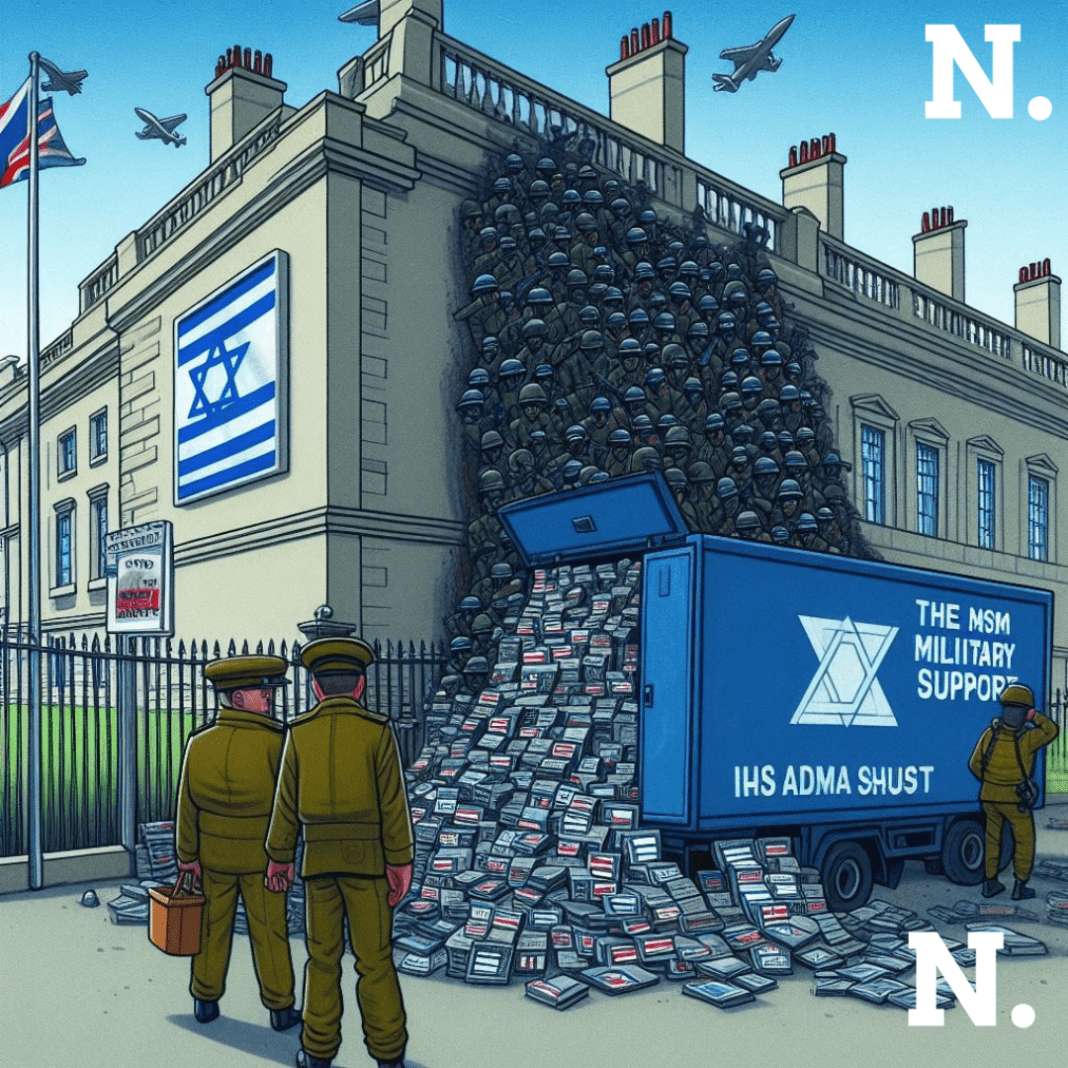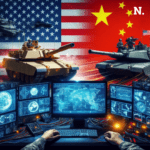For decades, the conflict in the Middle East between Israelis and Palestinians has remained a global focal point, media item of interest, and geopolitical chessboard. The role of external international actors within the multifaceted nature of this conflict often becomes a contentious issue, particularly military support given by different countries. One such case is the involvement of the UK in providing support to Israel, an issue that the mainstream media (MSM) has generally been silent about.
Unveiling UK’s Military Support for Israel
The history of the relationship between the UK and Israel as nations began in the early 20th century. However, worrisome developments the world over emerged following the end of World War II and the establishment of the State of Israel in 1948. On its part, the UK has retained diplomatic relations with Israel, even though political tensions and disputes over the Israeli-Palestinian conflict regularly rise between the two nations. Among the aspects that MSM has either underreported or not covered at all is the military aid that the UK gives to Israel.
Declassified documents and investigative reports put a spotlight on the full depth of military cooperation between the UK and Israel. They confirm that over the years, the UK has provided Israel continuously with many forms of military aid, including weapons, technology, and training. Often, this support has been justified as part of broader defence cooperation agreements or alliances aimed at regional stability.
Support and Scrutiny: UK-Israel Arms Transfer Debate
Arms sales and transfers were certainly the most controversial aspect of military ties between the UK and Israel. While from time to time calls made for an arms embargo on Israel over actions in the Palestinian territories, the UK has nonetheless maintained exports of military hardware and technology to the country. These include small arms and advanced surveillance equipment, among others, some of which, according to critics, could have an impact on enhancing military capability and potentially their operations in the occupied territories.
Training, Cooperation and Political Ramifications
The UK-Israel military relationship, in addition to the arms trade, includes vast training programs and joint military exercises. It reported that British military personnel trained members of the Israeli military in counter-terrorism tactics and strategies of urban warfare. Such cooperation raises ethical questions regarding indirect UK involvement in the Israeli-Palestinian conflict and its consequences for regional dynamics.
The serious nature of the UK’s military support to Israel has resulted in its rather sparse or selective coverage in the mainstream media for various reasons. Geopolitical sensitivities and economic interests are the most prevalent, wherein such issues may be put on a low profile or leading narratives of greater significance may be used for other global issues by the editorial policy of the media outlets. Other concerns could also be a possible backlash or accusation of bias in reporting on the Israeli-Palestinian conflict.
The political ramifications of UK military support for Israel are multifaceted. On the domestic front, opponents argue that such action contravenes ethical foreign policy principles and human rights obligations. On the international level, it will further complicate the UK’s position as a mediator or neutral actor in theMiddle East peace process. More broadly, it raises to the forefront the challenges that arise when walking the tightrope between strategic partnerships and morality in foreign policy.
Public Awareness and Accountability
Increasing advocacy by advocacy groups and civil society has put pressure on the UK administration regarding transparency and accountability related to UK military support for Israel. Campaigning voices argue that an increased awareness and informed debate are the primary engines for charting responsible foreign policy. After all, without comprehensive media coverage and a robust public discourse, any meaningful form of accountability eludes one.
Transparency, Ethics, and Media Silence”
The question of UK military support for Israel cuts across a tapestry complex in terms of diplomacy, geopolitics, and ethical issues. Although declassified documents and investigative reports divulge something about this relationship, the relative silence of mainstream media raises important questions in terms of transparency and awareness among the general public. As citizens worldwide become more aware than hitherto of dealings their governments enter into abroad, so there emerges an even greater pressing need for such sensitive issues to have balanced and acute reporting.Through informed debate and accountability, responsible and ethical navigation of complex international relations issues can be achieved on a global scale.
The declassified details highlight the fact that the UK’s military supplies to Israel must be regularly assessed, with any potential negative consequences taken into account for all intergovernmental alliances.
It also cements the role of media in framing discourse and keeping governments answerable for foreign policy decisions. The debate will continue, but transparency and ethics will underline discourse on the UK’s role in solving or fueling the Israeli-Palestinian conflict and general Middle East dynamics.





